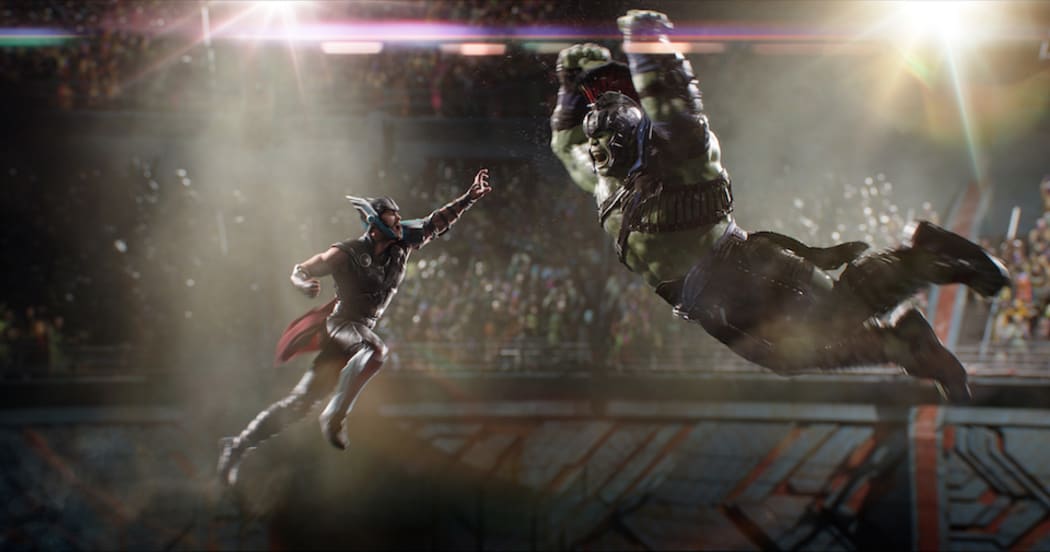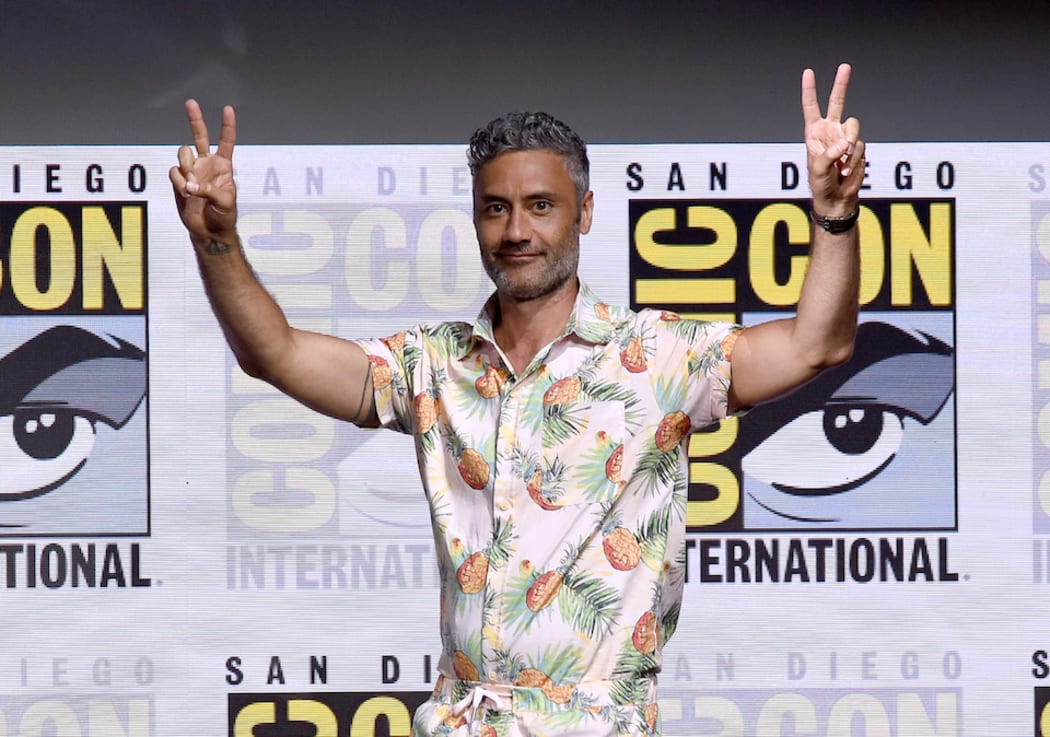The stakes were high, but Thor: Ragnarok delivers.

Photo: Marvel Studio
When Taika Waititi was announced as the director of Marvel’s third Thor movie, it seemed to many as if he had won some kind of cinematic lottery: the opportunity to helm an installment in the world’s most insanely lucrative superhero franchise is not something that happens to a New Zealand director every day.
Yet, as we reach the peak of milking pre-existing intellectual property for all it's worth, the steady vacuum into which cool, interesting, original directors are rapidly being sucked does not always reap the rewards one might imagine: Denis Villeneuve’s Blade Runner sequel bombed at the box office; Jordan Vogt-Roberts flipped out when not everyone loved Kong: Skull Island; And the Star Wars franchise continues to develop a reputation for hiring and then firing risky new talent mid-production due to mysterious "creative differences".
Basically, for every Patty Jenkins Wonder Woman success story there’s a Josh Trank Fantastic Four horror story: young, inventive and promising only to be soiled by an attempt at an unholy alliance with the cruel and indifferent major studio machine (though Trank’s purported terrifying army of tiny killer dogs may not have helped).
So when our beloved national treasure/huge traitor/New Zealand’s best ever director (suck it, Peter Jackson) first became attached to Thor: Ragnarok, the latest installment in Marvel’s conveyer belt of super people movies my brow, initially, furrowed.
Good news: It needn’t have!
As you will no doubt hear over the coming weeks, months and maybe eternity, Thor: Ragnarok is a resounding success. It’s clever. It’s sweet. It’s really, genuinely funny, in exactly the way those familiar with Waititi’s previous work would hope for - witty, bone-dry and beautifully good-natured. It’s also one of the few Marvel movies that didn’t have me getting separation anxiety from my phone by the time it hit the 90-minute mark.
While previously we’ve seen the Norse God of Thunder mainly deal to our pithy human troubles on earth, Thor: Ragnarok resets the action on his home planet Asgard as it is terrorised by Hela (Cate Blanchett), the Goddess of Death.
Unfortunately for Thor, while this is going on he winds up somewhere else altogether - a weird, junk-covered planet populated by waifs and strays set adrift in the universe and governed by a maniacal but verrrrry charming Jeff Goldblum. Thor thus has two tasks - get off the reject planet and get back to Asgard in time to save it from Blanchett’s giant dog and army of the dead.
It’s a simple story (good news when you consider that the Justice League trailers have hinted at approximately 200 different plots so far and counting) with carefully considered and expertly rendered execution.

Taika Waititi at the 2017 Comic-Con convention. Photo: AFP
Along with Wonder Woman, it’s also one of the best superhero movie anyone’s done in years. With viewers growing ever more fatigued with the endless flood of comic book adaptations, studios have been trying to reconfigure the formula for a while with limited success: Deadpool went crass; Spiderman went cute; Suicide Squad went hilariously terribly. And while all saw financial success, it’s hard to say any were exactly triumphs of filmmaking.
Instead of trying to edgily re-jig its source material, Thor: Ragnarok luxuriates in it: where previously the impulse for such films has been to use a kind of gritty realism to imbue them with meaning, Waititi recognises and wholeheartedly celebrates their inherent absurdity to fabulous effect.
It is also an immense relief to see evidence of just how much freedom was given to him in doing so: the Kiwi accents; the frequent Australiasian in-jokes; Karl Urban’s mere existence; not to mention Waititi himself appearing, albeit in CGI form, in a small but not insignificant part as a particularly deadpan rock monster (who, according to Waititi, is “a little special piece of K Rd bouncer outside a nightclub”). Every element of Thor: Ragnarok for which Waititi is unmistakably responsible shines like a beacon and not just because it’s familiar.
Rather, in a landscape utterly oversaturated with franchises sucked dry of originality by overbearing studios, Thor: Ragnarok proves that such projects can be as fertile a ground as any other for truly bold, audacious filmmaking.
Thor: Ragnarok is in cinemas.

